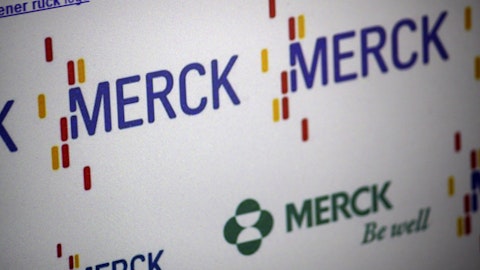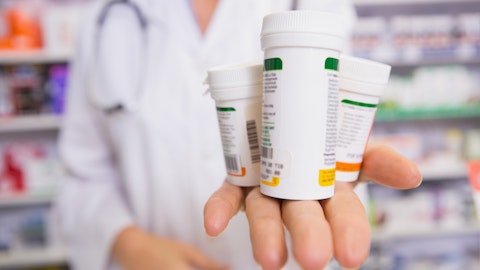By Khojinur Usmonov
From low costs to expedited drug approval, President Trump recently met with big pharma CEOs about overhauling the entire system. Here’s what you need to know.
A few weeks ago, President Donald Trump met with a series of biotech CEOs to discuss a historically major pain point for the industry: cutting the FDA drug approval process “at a level no one has ever seen before.”
Word leaked in December (before Trump officially took seat in the White House) that the then-President-elect could be looking into overhauling the FDA drug approval process, a process that’s been a big thorn in the side of many medical companies and biotech companies.

g0d4ather/Shutterstock.com
After approving an all-time high 51 new drugs in 2015, FDA-approved drugs dropped to just 22 in 2016, the lowest since 2010. And January has been slow, with just two drugs clearing the FDA hurdle, according to Nasdaq.
“We’re also going to be streamlining the process,” Trump told CEOs from Pharmaceutical Research and Manufacturers of America (PhRMA), Merck & Co., Inc. (NYSE:MRK), Novartis AG (ADR) (NYSE:NVS), Johnson & Johnson (NYSE:JNJ), Celgene Corporation (NASDAQ:CELG) and others in the highly publicized meeting, “So that from your standpoint, when you have a drug you can actually get it approved, instead of waiting for many, many years.”
In early January, a number of biotech stocks took a hit, with Trump blaming the volatility on a “disastrous” industry. “The other thing we have to do is create new bidding procedures for the drug industry, because they’re getting away with murder,” the President said (1).
In addition to a lengthy and costly approval process that can take up to 20 years, the U.S. typically pays more for drugs than any other developed countries. Most Western European countries, as well as Japan, have government-run health care coverage.
“We’re the largest buyer of drugs in the world, and yet we don’t bid properly,” Trump said. “We’re going to start bidding. We’re going to save billions of dollars over a period of time.”
Due to high costs imposed by the regulatory system, the estimated average costs of one new medicine ranges from $1 billion to $4 billion, Forbes reported. In the meeting with big pharma CEOs – who actually benefit from the status quo, Trump pressed them to come down on their pricing, while also keeping manufacturing in the US.
“You folks have done a very great job over the years,” Trump told the executives, “but we have to get the prices down.”
Meeting attendees included pharma CEOs like Merck & Co., Inc. (NYSE:MRK)’s Ken Frazier ($179 billion market cap), Novartis AG (ADR) (NYSE:NVS)’s Joe Jimenez ($194.617 billion), Johnson & Johnson (NYSE:JNJ)’s Alex Gorsky ($308.5 billion), Amgen, Inc. (NASDAQ:AMGN)’s Robert Bradway ($124 billion), Celgene Corporation (NASDAQ:CELG)’s Mark Alles ($90 billion), and Stephen Ubl, head of industry’s trade association, PhRMA.
Trump says he plans on appointing a new FDA chief, with managing director of Peter Thiel’s Mithril Capital Jim O’Neill the rumored favorite to take the top spot.
According to a December Forbes report, O’Neill has publicly supported proposals to do away with the FDA’s requirement for phase 2 and 3 trials, instead favoring a more “progressive approval” of drugs and other medical technologies.
While the thorough approval process has been put in place to ensure safety of the drugs, the damages incurred are massive, with billions in costs plus potential of lives lost due to effective, but unapproved, drugs not passing phase 2.
“Another side effect of the current system is that many drugs never leave the lab,” Forbes’ Patrick Cox reported. “These are drugs that could effectively treat serious illness but aren’t worth the cost of approval. This is because the patient population is too small to recoup approval costs.”
“We’re going to get the approval process much faster,” said Trump. “One thing that’s always disturbed me is that you come up with a new drug for a patient that’s terminal and FDA says you can’t have this drug used on this patient and patient will be dead… we don’t know if drug works or doesn’t work, but the patient’s not going to live for more than four weeks.”
While the human costs are one thing, for many small-cap stocks, phase 2 approval is the make-or-break stage, the one key event that ensures the drug hits the market and the business gets to run.
Follow Merck & Co. Inc. (NYSE:MRK)
Follow Merck & Co. Inc. (NYSE:MRK)
Receive real-time insider trading and news alerts





